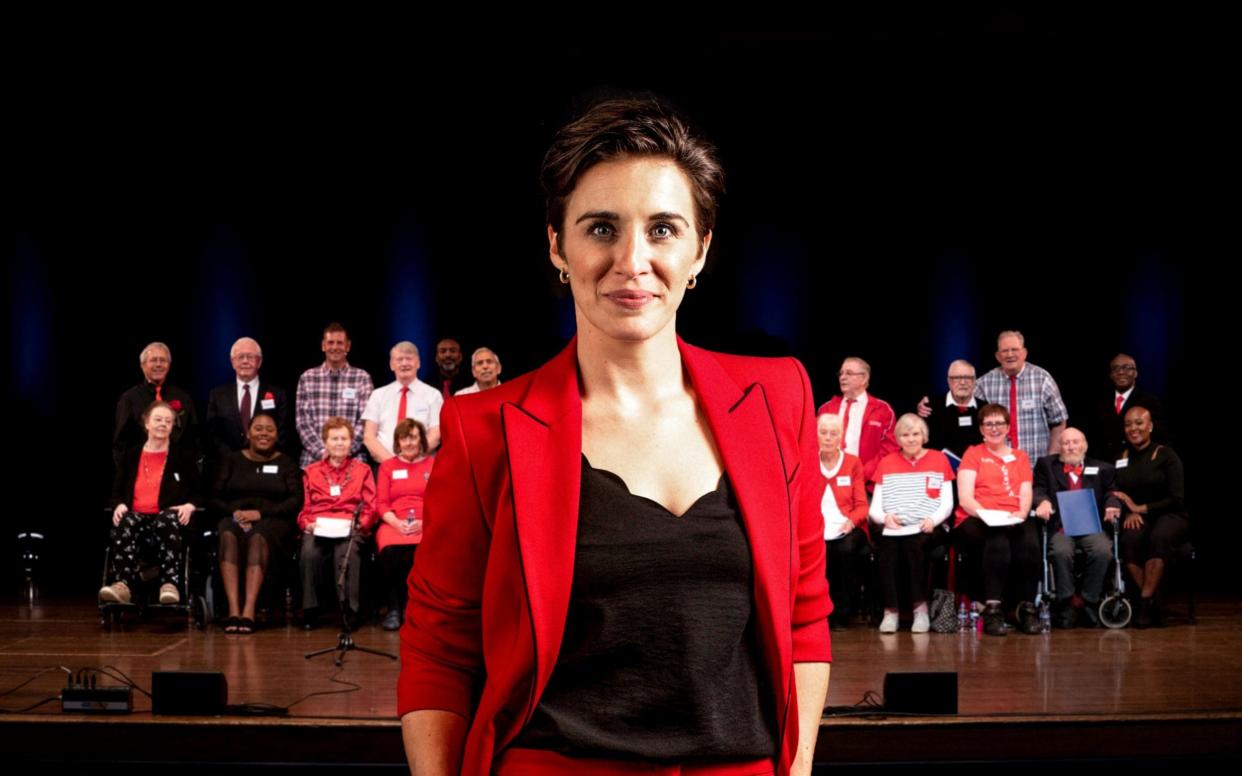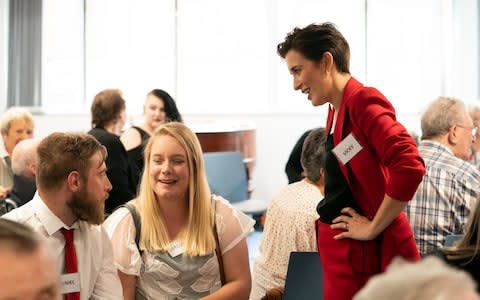Our Dementia Choir with Vicky McClure, episode one review: a fine study of how music gives hope to those with dementia

Having aving recently witnessed the amazing uplift music can give dementia patients, I instantly bonded with Our Dementia Choir with Vicky McClure (BBC One) and its wonderfully positive message about how music can help people living with this devastating and ever more common condition.
In the first of two parts, McClure – star of Line of Duty – set up a choir in her home town of Nottingham, teaming up the Open University and neuroscientists from University College London conducting a three-year study into music and dementia.
“I want to prove that life doesn’t end with a diagnosis,” said McClure, who first noticed music’s capacity to calm and alter mood when helping her late grandmother Iris cope with the condition.
That sense of seeing dementia as a progression, not an end, rang true with those who signed up for the choir – many of whom felt written off after being diagnosed and who blossomed here under the group challenge of learning something new and performing. Like former music teacher Rae, who after just one rehearsal sat at a piano and played for the first time in 10 years; or 50-year-old former deputy council leader Julie, whose vastly busy life came to an abrupt halt with her diagnosis, and who seemed to find a renewed sense of purpose through her involvement here.

Despite all of the positivity, the fact that there’s no cure for dementia was never allowed to slip from view, nor its emotional impact on family and carers. As such, the scientific study provided an anchor of understanding, exploring how music uniquely activates linked areas of the brain dealing with memory, emotion and language, and how these areas interact anew when stimulated simultaneously.
That dementia can strike at any age was also writ large, notably through the presence of 31-year-old Daniel, a musician and engineer who faced an uncertain future having been diagnosed with a rare genetic form of the disease, and whose 12-month-old twins, Lola and Jasper, stood a 50 per cent chance of inheriting it. He was desperate to take part in the study for their sake and his upcoming marriage to partner Jordan gave the choir an opportunity for a party and an informal first performance.
Emotions swirled, tears flooded and hearts melted. Given the number of people in the UK whose lives are currently touched by dementia, I have no doubt the message came across loud and clear: music can help, try it.

